© Jacob King/PA Wire/PA Images
More than 46 million people in the UK are currently double vaccinated. Around 7m more have had one dose, and another 20m have had their boosters or third jabs. That’s a lot of injections, representing more than 69% of the population who are fully vaccinated and with a considerably higher chance of keeping COVID-19 at bay, than if they weren’t.
A year ago today, the very first of those 115m injections was administered to a 90-year-old grandmother, Maggie Keenan, in Coventry. Maggie wasn’t just the first person in the UK to receive a COVID vaccine, outside of clinical trials, she was the first person in the world.
And the matron who administered it to her was UNISON member May Parsons.
Together, May and Maggie heralded the world’s fightback against coronavirus. And despite continuing setbacks, like the new Omicron variant, a year later the world is a far safer place.
Thinking back to that “momentous” day now, May is in no doubt about the positive effect of the vaccination programme. “We had already witnessed a lot of deaths in our trust. And working in intensive care and the COVID areas, knowing the extent of the virus, it was just mind-blowing to be able to offer the vaccine to everyone. It struck me that the world was changing.
“The numbers in terms of admissions, from when we first rolled it out, are now really low. They’ve gone down significantly. And the patients coming in are not the double vaccinated.”
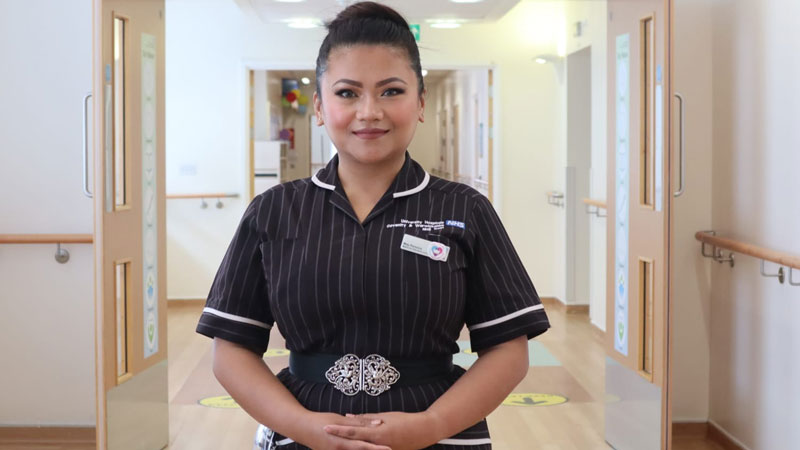
Born in the Philippines, where she did her nurse training, May has been living in the UK and working for the NHS since 2003. When COVID hit in March 2020, she was the modern matron for education and escalation, at the University Hospitals Coventry and Warwickshire NHS Trust.
As her hospital quickly redirected its resources towards tackling the virus, the escalation ward (for patients whose discharge is delayed) was closed and May volunteered to work in the intensive care unit, where she could put her training to good use. “We were all terrified, but I would rather know that I could be of some help. I was scared, but it was something that needed to be done.”
She later resumed her matron duties, and in October 2020 stepped in as matron for respiratory medicine – in other words, the COVID wards, where she’s still overseeing more than 220 staff, including nurses, specialist nurses, healthcare support workers and ward clerks.
The amount of death we’ve seen every day, it’s just like going to war
Before the pandemic, May had been an active advocate of peer flu vaccinations, proud of her record of administering 140 flu jabs to colleagues in a single day – “from the ground floor to the 5th floor”. And she was now part of the group in her trust that was planning for the rollout of the COVID vaccine.
So perhaps it wasn’t such a surprise when she was asked to administer the first Pfizer/BioNTech vaccine herself. “My occupational health director rang and said, ‘May, I wonder if you wouldn’t mind doing the vaccination?’ I said, ‘Yeah, of course, no problem’. Then she said, ‘Oh, there might be a few cameras’.”
That was just a few days before the event. “I knew about 50 trusts in the UK were rolling it out on the same day, and I didn’t realise that ours was going to be the first until the night before. But I wasn’t really nervous, I was more worried about Maggie.”
Typical of her care and professionalism, May met with Maggie the night before, to ensure she was comfortable with the procedure, was aware of the possible complications and to discuss the media attention. She needn’t have worried.
“Maggie didn’t need much reassurance. She told me that she had the first tuberculosis vaccine as well! So she was happy to have the vaccine. She just wanted to see her family. Living on her own must have been really difficult for her, to not see her grandchildren. She said in one of the interviews that it was the best Christmas present that she could have.”
The enormity of that historic occasion didn’t hit May until some time later.
“For the first week I was really so tired. I was doing 14/15 hour shifts, on my COVID ward as well as managing our COVID vaccination clinic. It was a whirlwind. I think after a week, when I managed to get a breather, that’s when it sank in how tremendous and momentous that moment was. I thought ‘Oh my God, the news is everywhere’. The impact of our jab went global and was so positively received.”
The vaccine for me is almost like being able to give someone a shield to at least defend themselves
The spotlight has had a number of unexpected consequences. The sweetest, has been the fact that after Maggie wore the trust’s charity t-shirt for her jab (courtesy of May) sales soared 500% – with proceeds going towards equipment that benefits the health and wellbeing of both patients and staff.
The pair were later interviewed together online, by NHS England chief executive Sir Simon Stevens, reflecting on the success of the vaccination programme. And May was asked to speak at both the Nursing Times Awards ceremony (when she won a standing ovation from her fellow nurses) and the service of commemoration and thanksgiving to mark the 73rd birthday of the NHS, at St Paul’s Cathedral.
What has meant to most to her, personally, has been the chance to highlight the “invaluable role that nurses played in the pandemic”, along with the whole NHS team.
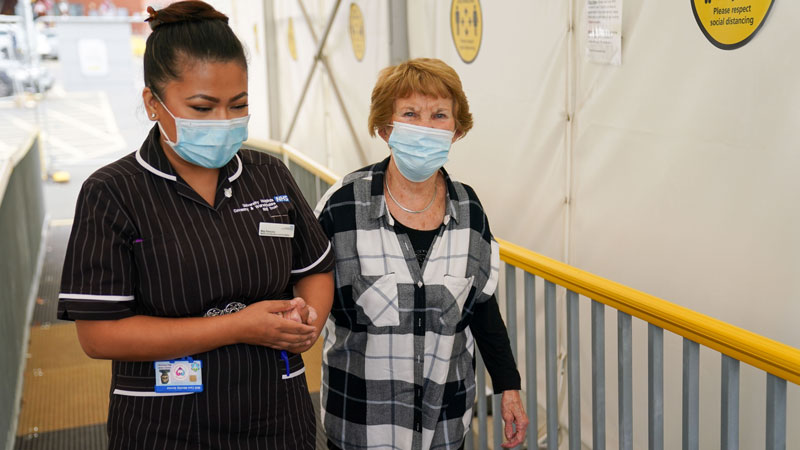
September 2021. Maggie and May meet again for their booster jabs © Jacob King/PA Wire/PA Images
May is married with two teenage children, and says that she was “fortunate to have a support system at home” during the pandemic and is keen to support those of her staff who don’t. She’s also the West Midlands regional director of The Filipino Nurses Association UK, supporting a community that has been hit hard – in the first wave of the pandemic, one in five health care deaths due to COVID were Filipino.
Meanwhile, the vaccination programme rolls on, though it upsets May that there are still vocal naysayers who convince others against being vaccinated.
“The people we’re getting now in the wards are young, fit and healthy, with no underlying issues. But they get COVID and then they die,” she says sadly. “The people who are double jabbed, we don’t see. We need to get this information out there. But because of the internet and social media, our message is being drowned out. The people giving misinformation are shouting louder than we are.
“A lot of people who are not in the healthcare profession don’t have the information that we have in the hospitals, or the experience we have to go through. Everyone in my workplace knows the impact of the virus, on a community level, and it’s really heart-breaking. You want it to stop.
“So I think it’s about having that insight into the actual effect of the virus. The amount of death we’ve seen every day, it’s just like going to war. But in a war you see your opponent; here it’s everywhere and you don’t really know when it’s going to get you.
“The vaccine for me is almost like being able to give someone a shield to at least defend themselves. I would be asking people, if you’re not medically exempt, or don’t have any historical issues, get it, because it gives you the optimum chance of surviving the virus.”

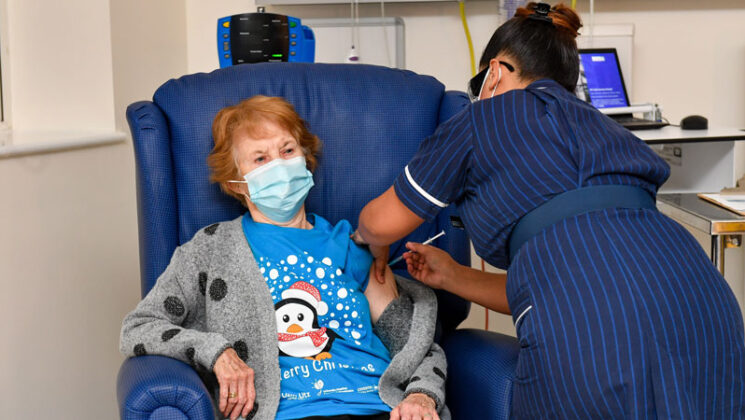

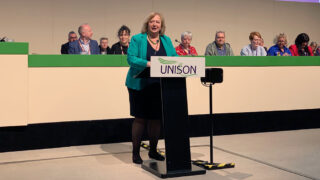
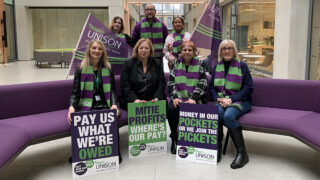
Absolutely fuming regarding the vaccination post. This should not be somthing that unison promotes . The government are trying to sack 60,000 NHS staff next April if this vaccine gets mandated and unison is promoting it??? Is there no respect for the unison workers who have chosen to be vaccination free who work for NHS??
Not the message you should be sending out to your members . I find the post discriminating. Not happy unison , how can you represent NHS unison members when you are promoting this .
Ive had covid , for me it was a day of shivers followed by a sore throat and stuffy nose for a few days , certainly didnt last as long as isolating , unison should be fighting for the rights of its members for better working environments , pay and freedom of choice , what will you do for me when i am sacked for not wanting this vaccine you seem to be promoting it and it is not your place to do so